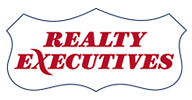
Thinking about buying your first home? What an exciting time this is bound to be. And, also, what a (potentially) overwhelming, confusing, and stress-filled time. It can easily veer into scary territory if you're not prepared and not surrounding yourself with professionals who can help guide you in the right direction.
These seven tips can help you make that dream of homeownership come true in 2017:

The guy next door or your brother's girlfriend's cousin who just got his real estate license may be hungry to get your business, but that doesn't mean he's your best bet. An experienced agent quite simply knows things that someone who is brand new probably doesn't. An experienced agent will also have important relationships in place that may be able to help buyers in every facet of the home purchase, including:
- Finding houses that aren't even listed yet
- Finding homes that may be slightly outside of a buyer's criteria but that are worthy of consideration
- Leveraging industry relationships to get you great deals or better terms
- Managing appraisals and inspections
- Working through every step of the purchase process and handling any issues that pop up along the way
- Negotiating a deal that works for both sides
 Don't be afraid to talk to multiple lenders
Don't be afraid to talk to multiple lenders
Your Realtor will most likely have several lenders they have worked with and can refer you to. You may also want to speak to loved ones and get a referral or two from someone they've worked with successfully. Each lender may have a different recommendation and/or knowledge of a special loan that works for you, so it makes sense to look at a few different options.
 Mind your credit
Mind your credit
Many people have no idea what their credit score is, but if you're thinking about buying a home, knowledge is power. Different loans have different minimum credit score requirements, and it could be that your score doesn't measure up for the best loan rates, or maybe you need to do some work to qualify for even the most lenient loan.
A good mortgage lender can advise you on your best options to raise your score, from removing any errors on your credit report, to paying any delinquent accounts, to exploring credit repair options. The earlier you learn your score and delve into the details with a qualified lender, the more time you have to address any issues you find.
 Save, save, save
Save, save, save

For many people, getting the down payment together is the hardest part of buying a home. And the closing costs can be an unwelcome surprise for those who weren't expecting to have to come up with even more cash. When you first set out to buy a home, make sure you know how much you have to save. Your lender should be able to give you a pretty good ballpark based on a certain home price. Housing experts recommend adding 5% to that number just to be safe.
Even if you've never been a great saver in the past, there are strategies you can use that will help you build the nest egg you need for your down payment and closing costs, including these tips from nerdwallet:
- Automatic transfers from your checking account to your savings can help to make the process mandatory - and maybe a little less painful.
- Save raises and bonuses rather than spending them.
- Keep the change. At least a couple of banks have variations on this theme. Some banks allow debit card users to sign up for a service that rounds up purchases to the nearest dollar and puts the change into a linked savings account.
- Visualize your goal. Slap big, beautiful photos of your dream house on the refrigerator, near your office workspace - and wrap a small one around the primary credit card in your wallet. You might charge less and save more."
As for where to put that money while you watch it grow, experts recommend that "If the plan is to become a homeowner in the next 12 months, the money should be kept completely liquid. That means you can easily access it at any time," said CNN Money. "The best way to do that is in a good old-fashioned savings account, Schulte said. Look for one with a higher yield. In today's low rate environment, that probably means an online-only account like Ally or Synchrony Bank, which currently pay around 1% annually."
 Lock in your rate
Lock in your rate

Rates can be unpredictable. Locking in a rate when you get close to buying, which your lender will undoubtedly recommend, can protect you if rates rise. Many lenders also offer a one-time adjustment in case rates go down.
 Stay at your job
Stay at your job
Not happy at work and thinking about making a change? If you're looking to buy a home, you may have to delay that plan. Part of your qualification for a mortgage will be based on your job history. Making a big change just before you buy or during the escrow process will be problematic. Lenders advise buyers to stay the course until after the home closes escrow.
 Don't open new credit cards or buy a new car
Don't open new credit cards or buy a new car
Your lender will spell out the do's and don'ts of how to protect your credit when trying to buy a house, but if you haven't yet talked to anyone and you think you're getting close to be purchase-ready, that Kohl's card you take out to save 20% on your $100 bill could cost you. Before you take out any new debt, check with a lender.

SOURCE: RealtyTimes.com











